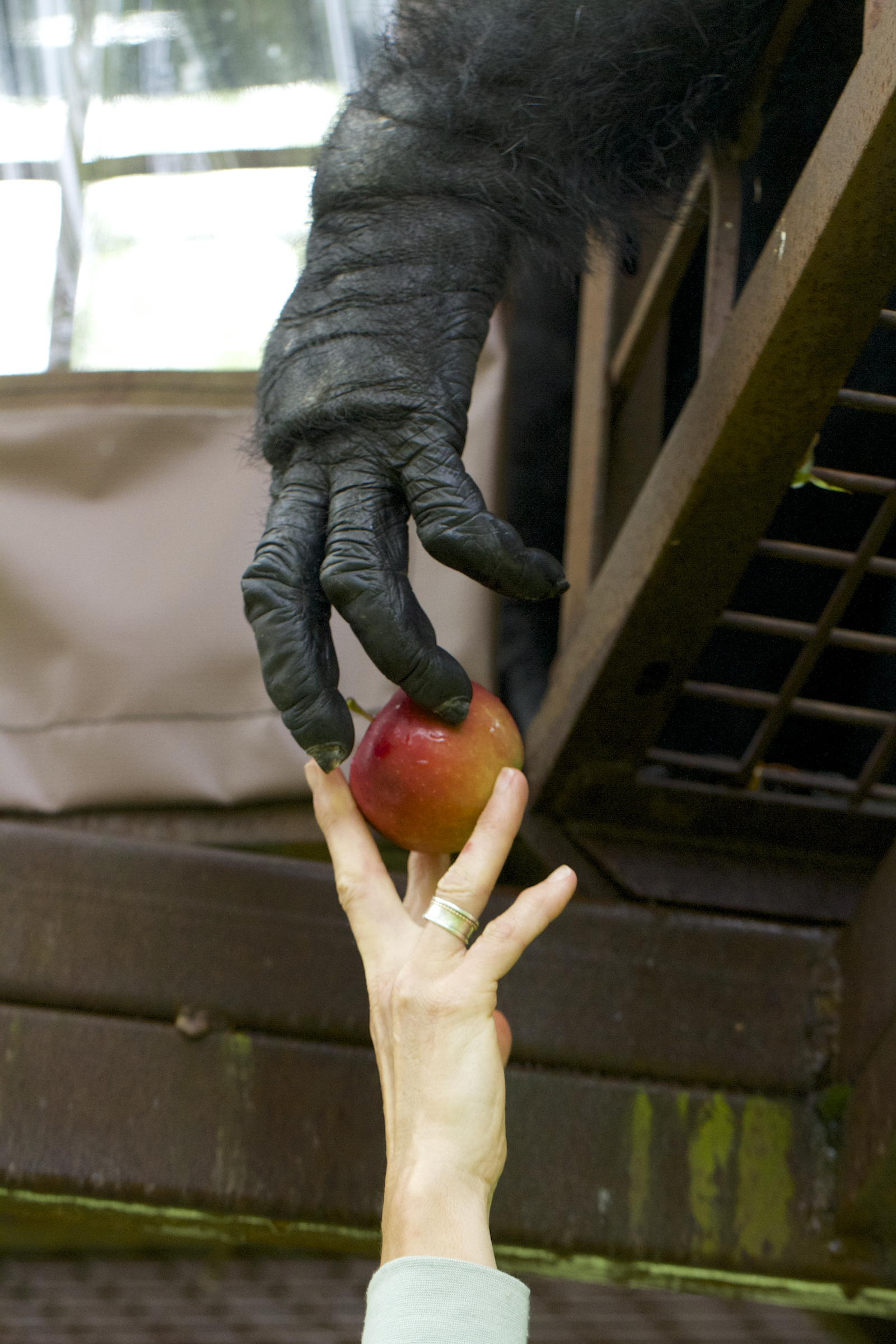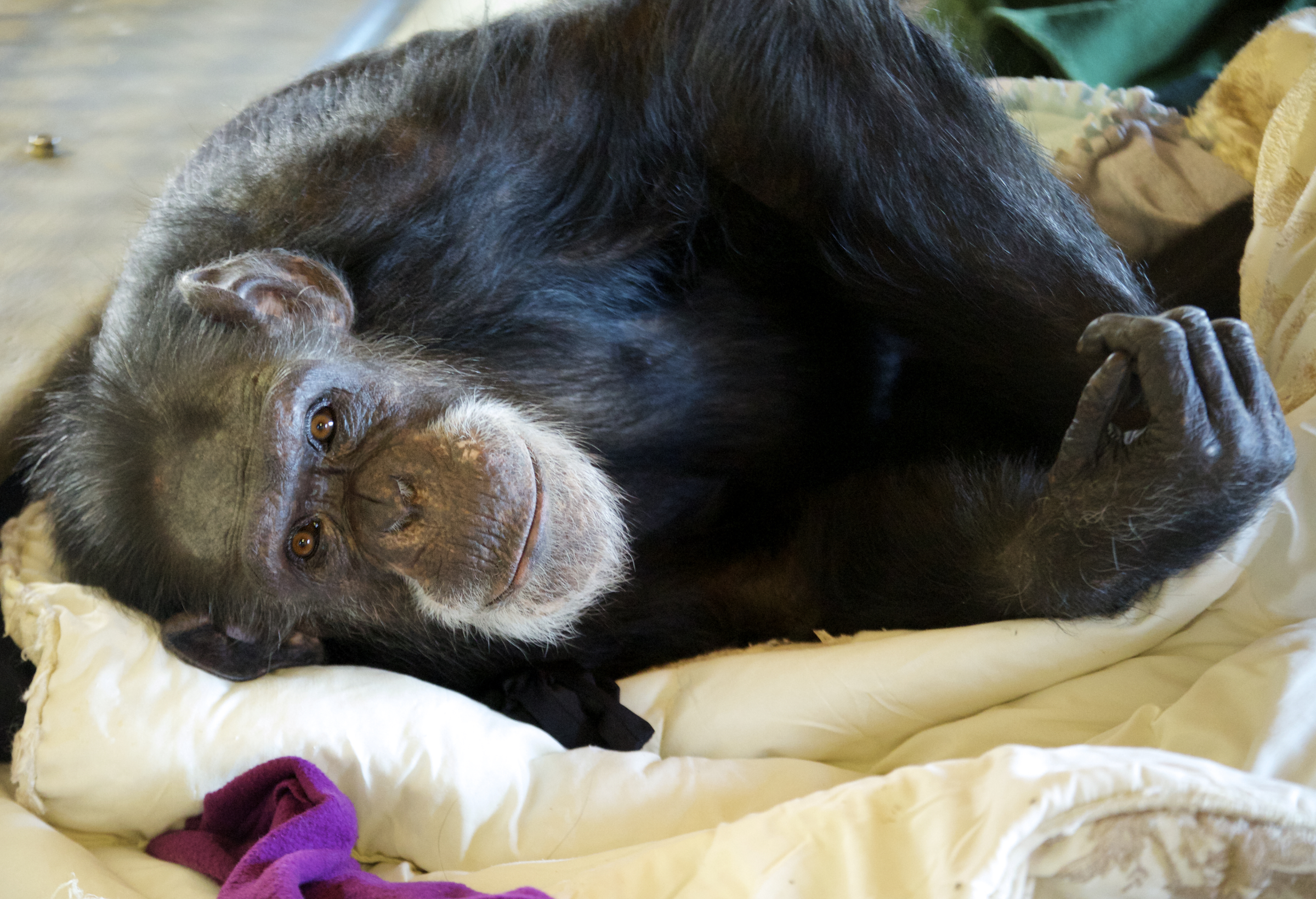The Fauna Foundation protects roughly 80 animals who were previously exploited by humans
On Nov. 26, members of the Concordia Animal Rights Association (CARA) hosted a yoga class fundraiser for the Fauna Foundation, Canada’s one and only chimpanzee sanctuary located in Carignan, Quebec, on the south shore of Montreal.

CARA’s goal was not only to encourage participants to donate during the event, but also to raise awareness about the sanctuary, founded in 1997 by Gloria Grow.
“We work to promote compassion towards all living beings, we encourage people to adopt a vegan lifestyle and have compassion for animals,” said Lara Mackenzie, president of CARA. Seven executives and 130 volunteers make up CARA, and they work closely with organizations such as the SPCA, PETA and Mercy For Animals. Mackenzie has been volunteering at Fauna for roughly a year.
Fauna’s sanctuary provides permanent protection for about 80 animals, including chimps, farm animals and other wildlife from human exploitation. Animals at the sanctuary may have been neglected, victims of abuse, medical research animals or used for human entertainment. A team of caregivers provides them with resources to live a healthy, happy life, which includes shelter, food, medical attention and companionship, according to their official website.
“Caregiver is a great word because it’s really about service and about giving to them what we can,” said Mary Lee Jensvold, associate director of the Fauna Foundation. “The model that we use to think about the role [of a caregiver] is to think about other institutional settings where you care for the residents with compassion or with respect. So that would be like a well-rounded nursing home, or hospital situation, as opposed to other kinds of institutions where the residents are treated without respect and are imprisoned.”

Prior to being a volunteer at Fauna, Mackenzie said she didn’t realize how similar chimps were to humans. “They look into your eyes, and it’s like looking into a human’s eyes,” she said.
Like humans, the chimps have different personalities and needs, too. “It’s important to know about their backgrounds so you can tailor the care of them,” Jensvold said. “For example, for Tatu and Loulis, we’ve made it a priority for them to have folks on the project who know sign language.”

On their website, each chimp has a biography which includes their name, date of birth, where they came from, how they were exploited and how they ended up at Fauna.
“Chimps are a good way for people to understand our relationship with the rest of nature, because chimpanzees are so like us. In our culture we often view others as different [than] us, and that allows us to exploit them,” said Jensvold. When people bridge that human-chimp gap, it’s no longer easy to enter into exploitive and abusive relationships with them, she said.

Fauna has an eight-week visiting intern program for students, where they are directly involved in taking care of the chimps. They also get to complete a non-invasive observational research project, looking at how the chimps utilize the facility, Jensvold explained.
Mackenzie’s advice for students is simple: just get involved. “There are so many opportunities and so many animal welfare organizations that need help all the time,” she said. Through CARA, students can work with nonprofits like Fauna, directly and indirectly.

On Dec. 3 in the JMSB lobby, CARA is hosting a vegan bake sale to raise money to build a new home for three bears in Thailand living in extremely small enclosures.
Learn more about Fauna at faunafoundation.org and CARA on their official Facebook page to learn how you can contribute.




Love the article!